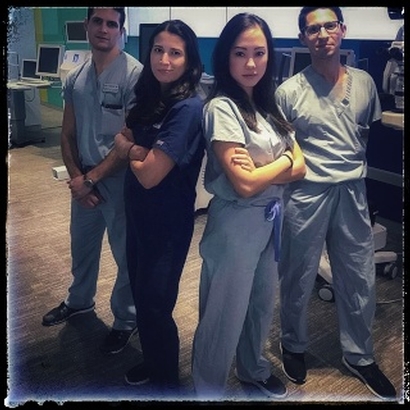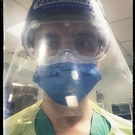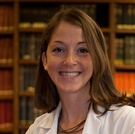Coleen Palileo, MD muses about the special significance of the Year 2020 for Ophthalmologists and how COVID19 changed everything.
2020 was supposed to be the year of the ophthalmologist. For me personally, it’s a year with many special meanings. 2020 represents the culmination of twelve years of training to become an independently practicing physician and surgeon. From the competitive years of undergraduate classes, to the long hours spent in the dungeons of medical school, and the growing pains of residency – this is the year when all of my hard work would come to fruition. The senior year of ophthalmology residency is also unique because this is the time when residents can really focus on surgery. I looked forward to honing my surgical skills and finding my identity as a surgeon. I began this year by creating surgical milestones such as completing cataract surgery in a certain amount of time, or mastering more advanced surgical techniques before graduation. But all of these plans came to a jarring halt in March of 2020. I had not planned for a global pandemic.
As I write this article, there are approximately 4.7 million coronavirus cases in the world with over 300,000 deaths. SARS-CoV-2 has not only affected humankind as a whole has also impacted each individual in very personal ways. Today, I feel extremely grateful that my loved ones and I have stayed safe and healthy throughout this pandemic. At the same time, I mourn for the things have changed due to the virus. At the beginning of residency, I knew that having just three years to master this extremely complex field, made every single day extremely important. Since the COVID-19 pandemic, my residency training has drastically changed.
Clinical Experience
On a normal day, Kresge Eye Institute serves hundreds of patients and is home to a large group of support staff, residents, fellows, and attending physicians. The COVID-19 pandemic has stripped this well-oiled machine to just bare bones. The entire flow of the institute had to adapt and change to ensure the health and safety of our patients, staff, and physicians. New protocols were implemented such as checking temperatures prior to entering the building, assigning a physician screener to triage nonurgent medical complaints in the lobby, performing drive-through intraocular pressure checks for our most vulnerable patient population, and implementing more stringent quality control measures for disinfection and personal protection.
In accordance with the AAO’s recommendations of limiting ophthalmic practice to only urgent and emergent issues, the volume of patients served by the eye institute has dwindled. And along with this comes resident education. COVID-19 has severely affected our robust clinical experience in residency. For the past two months, the volume of patients has decreased immensely, limiting the number of learning experiences available to residents. Unfortunately, the majority of residents around the nation have suffered in the same way. As the world goes into lockdown, so does our education.
Surgical Experience
On March 27, 2020, the American Academy of Ophthalmology released a list of urgent and emergent surgical procedures and their indications to guide ophthalmologists during this unprecedented time. One of the staples of ophthalmology residency education is cataract surgery, a routine, nonurgent surgical procedure. Due to the COVID-19 pandemic, almost all cataract surgeries have been suspended, resulting in the loss of one-third of senior residents’ surgical training year. As a result, many residents fear entering practice with inadequate experience. The ACGME released a statement addressing the potential that graduating seniors may not be able to meet visit/case minima for graduation, stating that it is not the surgical case logs that determine competency but rather it up to the program director to determine if a resident is ready to graduate and enter unsupervised medical practice. Many junior residents fear that the coronavirus effects may linger for years to come, thus continuing to affect their surgical experience. As a result, more residents are looking towards fellowship training to ensure competency prior to entering practice.
Research Experience
The loss of clinical and surgical experience is only the tip of the iceberg that residents are experiencing today. Residents also continue to mourn the loss of research, networking, and conference experience during this pandemic. A large ophthalmology meeting, the ASCRS 2020 annual meeting, was cancelled this year and converted to a virtual meeting. Although this opportunity is an exciting one, it does not replace the in-person networking and connections that occur during a typical meeting. The upcoming AAO meeting in November is also at risk for possible coronavirus-related cancellations.
This is an unprecedented time in the world and despite the many losses we have had as ophthalmologists, I remain proud to be part of this special group of people. One of the aspects that made ophthalmology alluring to me was the fact that this field is extremely dynamic. It still boggles my mind that phacoemulsification was only introduced to us less than 60 years ago! In the midst of this pandemic, ophthalmologists have learned to adapt and conquer. Special attention has been focused on developing telehealth services, exploring the idea of bilateral surgery, developing new protective equipment made specifically for our slit lamp or indirect ophthalmoscope, and continuing to create virtual learning experiences, just name a few! I have no doubt that this time will only serve to forward the field of ophthalmology and that 2020 is still the year of the ophthalmologist!
Coleen Palileo, MD
Third-year Ophthalmology Resident
Kresge Eye Institute
Detroit, MI
(Instagram)
Want to get more from OphthoQuestions?









Please login to comment.